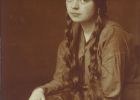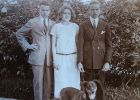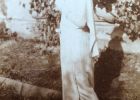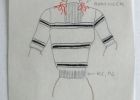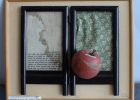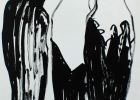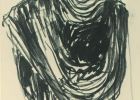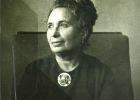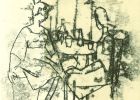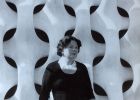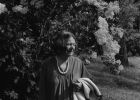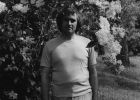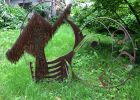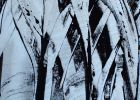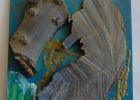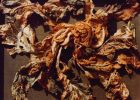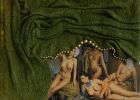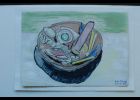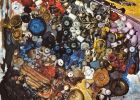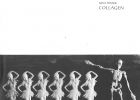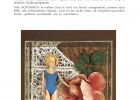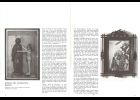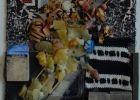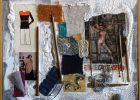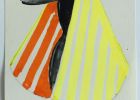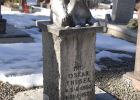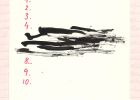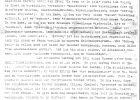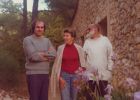The Political Crisis of the Anti-Zionist Jewish Intellectual
This text is an excerpt is from his latest book, which focuses on Vilém Flusser to illuminate intellectual Jewish history in the second half of the twentieth century, and vice versa. Flusser also featured prominently in his previous book, Photography and Jewish History: Five Twentieth Century Cases (UPENN Press, 2022). By examining five major twentieth-century case studies—from science and philanthropy to art—that intersect Jewish history and the history of photography, the book adapted Flusser’s theoretical framework to historical study to demonstrate how photography reshaped major concepts in twentieth-century Jewish history. individuals as isolated entities destined to face death in solitude. Flusser ultimately resolved his personal dilemma of place and belonging by embracing Bodenlosigkeit, locating its final form within the realm of aesthetics. His sharp rejection of a grounded politics stood in stark contrast to Zionism, which asserted Boden (ground/land) was a prerequisite for political life. It also diverged fundamentally from Heidegger's philosophy, which linked the "right way" to Boden but was an impossible alternative for Flusser, who viewed Nazism as a biological-technological program. Flusser’s philosophy, which notably lacks concepts such as political life, citizenship, or the state, exposes a profound political crisis in the post-Holocaust condition. His anti-nationalism and anti-Zionism stemmed from a general rejection of nationalism as a false striving for security and a specific conviction that Zionism contradicted his ideal of Judaism. While structurally echoing pre-1918 anti-Zionist thought, Flusser's views diverged from the post-1948 Jewish intellectual mainstream, ultimately offering a distinctive, marginal perspective on the evolving history of Jewish opposition to Zionism.
Regina Klaber Thusek und Vilém Flusser. Schönheit versus Hübschheit
Between 1973 and 1979, Vilém Flusser was friends with the artist Regina Klaber Thusek (born 1900, Römerstadt, d. 1983, Merano). Like Flusser, Klaber Thusek had a circle of friends that was international, and that showed a propensity for people with Jewish roots whose lives had been shaped by the Holocaust. Klaber Thusek, who traced her Jewish background through her father, immediately felt an affinity with Flusser, the Prague Jew. They met for the most part in Merano at the time both were living there, although the friendship culminated in a trip to Provence in May 1979. This essay, which briefly narrates Klaber Thusek’s life and her meeting with Flusser, is the result of several years of study of the artist’s estate, now held at the archive of the Palais Maming Museum in Merano. It contains extracts from the artist’s journal pertaining directly to Flusser.
Travels through Russian in English: Dale Pesman, Maria Tumarkin, Maxim Shrayer and Gary Shteyngart
The ‘travels through Russian in English’ of the four authors discussed here took place in different directions, and at different times. American artist Dale Pesman’s Russia and Soul (2000) is a work of anthropology, a retrospective mining of Pesman’s two years in the Siberian town of Omsk, 1990-1992, for what she learnt there of Russian dusha (or soul). Australian historian Maria Tumarkin’s memoir Otherland: a journey with my daughter (2010) recounts six weeks of travel with her 12-year-old daughter, Billie, in Russia and Ukraine in 2008 – Moscow, Kiev, St Petersburg, Babi Yar and Tumarkin’s birthplace of Kharkov – against the background of the author’s migration to Australia with her parents in 1989, aged 15. American literary scholar Maxim Shrayer’s Leaving Russia: A Jewish Story (2013) is an account of the nine refusenik years, 1978-1987, from his eleventh till his twentieth birthday, in which he and his parents waited for permission to leave the Soviet Union. Finally, American writer Gary Shteyngart’s Little Failure (2014) is a narrative of his growing up in the Soviet Union and the United States, after his migration there aged 7 with his parents in 1979. Pesman is the only one of these authors not born in the Soviet Union, and not from a Russian-speaking background. Her language travel, then, took her into Russian from (American) English, whereas the other three all moved initially from Russian into (American or Australian) English, with later return trips to post-Soviet Russia and Russian. All four authors are Jewish, and write of Russian-Jewish experience – in Pesman’s case, most obliquely, of how Jewishness shadows her provisional, adopted Russianness. All four texts invoke ways of being – cultural, psychological – which are possible in Russian, that is, among Russian-speakers, and equally, ways of being that emerge between Russian and English. Their engagement with these lingua-cultural ways of being is the focus of my paper.
